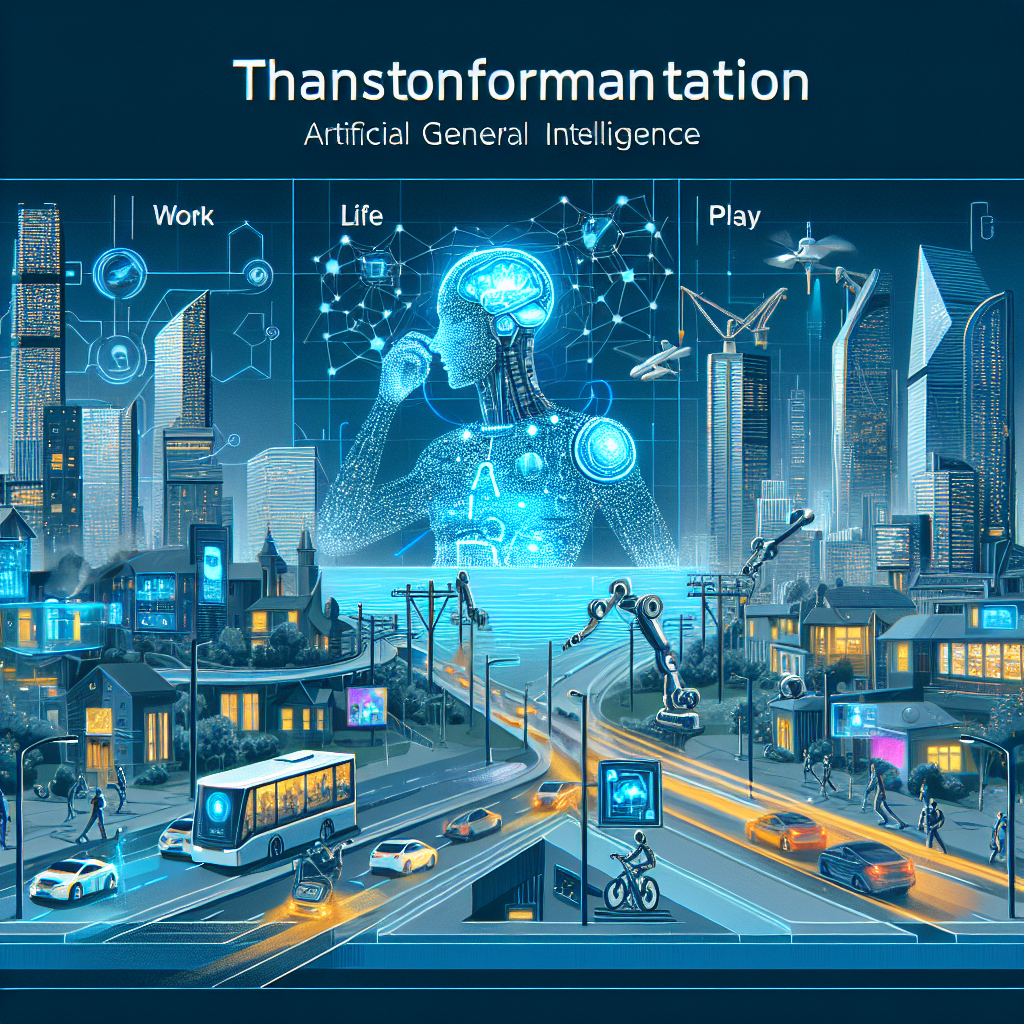Artificial General Intelligence (AGI) has long been the stuff of science fiction, but recent advancements in technology have made it a reality. AGI refers to the development of machines that possess the ability to learn, reason, and solve problems in a way that is indistinguishable from human intelligence. This technology has the potential to transform the way we work, live, and play in ways that were previously unimaginable.
In the workplace, AGI has the potential to revolutionize industries by automating tasks that were once thought to be the exclusive domain of human workers. AGI-powered machines can process and analyze vast amounts of data in a fraction of the time it would take a human to do so, making them invaluable assets in fields such as finance, healthcare, and manufacturing. This increased efficiency and productivity can lead to cost savings for businesses and allow employees to focus on more creative and strategic tasks.
AGI also has the potential to improve the way we live by enhancing our daily lives in numerous ways. Smart homes equipped with AGI technology can adjust lighting, temperature, and security settings based on the preferences of the occupants, creating a more comfortable and energy-efficient living environment. AGI-powered healthcare systems can analyze medical data to provide more accurate diagnoses and personalized treatment plans, improving patient outcomes and reducing healthcare costs.
In addition to transforming the way we work and live, AGI has the potential to revolutionize the way we play. Video games powered by AGI technology can create more immersive and realistic gaming experiences, allowing players to interact with virtual worlds in ways that were previously impossible. AGI can also be used to create personalized entertainment experiences, such as music playlists and movie recommendations, based on individual preferences and behavior patterns.
Despite the numerous potential benefits of AGI, there are also concerns about the impact it may have on society. One of the primary concerns is the potential for job displacement as machines take over tasks that were previously performed by humans. This could lead to widespread unemployment and economic instability if not managed properly. There are also concerns about the ethical implications of AGI, such as the potential for machines to make decisions that could harm humans or violate their rights.
To address these concerns, researchers and policymakers are working to develop guidelines and regulations for the responsible development and deployment of AGI technology. This includes ensuring that machines are programmed with ethical principles and values, such as respect for human life and autonomy. It also includes promoting transparency and accountability in the development process to ensure that AGI technology is used for the benefit of society as a whole.
Despite these challenges, the potential benefits of AGI are too great to ignore. By harnessing the power of artificial intelligence, we have the opportunity to create a future where machines work alongside humans to improve our lives in ways that were previously unimaginable. AGI has the potential to transform the way we work, live, and play, making our world a more efficient, comfortable, and enjoyable place to be.
FAQs:
1. What is the difference between AGI and artificial narrow intelligence (ANI)?
AGI refers to machines that possess the ability to learn, reason, and solve problems in a way that is indistinguishable from human intelligence, while ANI refers to machines that are programmed to perform specific tasks or functions. AGI has the ability to generalize and adapt to new situations, while ANI is limited to the tasks for which it was designed.
2. How is AGI different from machine learning and deep learning?
Machine learning and deep learning are subsets of artificial intelligence that focus on building algorithms that can learn from data and make predictions. AGI, on the other hand, aims to develop machines that possess the ability to learn, reason, and solve problems in a way that is indistinguishable from human intelligence.
3. What are the potential benefits of AGI?
AGI has the potential to revolutionize industries by automating tasks that were once thought to be the exclusive domain of human workers. It can also enhance our daily lives by creating more comfortable and energy-efficient living environments, improving healthcare outcomes, and creating more immersive entertainment experiences.
4. What are the ethical concerns surrounding AGI?
There are concerns about the potential for job displacement as machines take over tasks that were previously performed by humans. There are also concerns about the ethical implications of AGI, such as the potential for machines to make decisions that could harm humans or violate their rights. Researchers and policymakers are working to develop guidelines and regulations for the responsible development and deployment of AGI technology.
5. How can we ensure that AGI is used for the benefit of society?
To ensure that AGI is used for the benefit of society, it is important to program machines with ethical principles and values, such as respect for human life and autonomy. It is also important to promote transparency and accountability in the development process to ensure that AGI technology is used responsibly and ethically.

